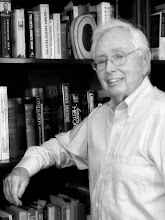Thursday, March 20, 2014
Origins of Clinical Psychology
Around 1900, Henry Goddard, a research psychologist at New Jersey's Vineland Training School had the Binet Simon scale for measuring intelligence translated into English and began using the procedure for evaluating mentally challenged residents at Vineland. AA few years later Lewis Terman, a psychology professor at Stanford University, revised the scale to become the Stanford Binet. The procedure was widely acce[ted as an objective procedure for measuring mental abilities. Prior to the development of these scale mental ability testing had been limited to measuring sensory acuity--a blind alley which did not predict academic or occupational achievement. Clinics for assessing mental abilities were established at many and hospitals. At New York City's Bellevue Hospital, a psychiatric facility, psychologist David Wechsler developed and standardized an alternative method of testing he labeled the Wechsler Bellevue. Psychology departments began training psychometricians,who were widely accepted in schools for assessing student abilities. However, psychologists were not widely accepted for providing counseling or psychotherapy for emotional problems.
It wasn't until World War II that a shortage of psychiatrists in the armed forces led the Veteran's Administration to begin training psychologists to perform and therapy. Once psychologists became accepted in this role they began to apply other treatment models. John Watson at Johns Hiopkins had laid the roots for behavioral approaches in treating fears and anxiety. Karl Rogers established principles and techniques for "nondirective counseling." South African psychiatrist Joseph Wolpe came to Philadelphia bringing techniques of treatment he believed derived from Pavlovian principles of conditioning. In the 1960s and '70s, Albert Ellis in New York City and Aaron Beck, at The University of Pennsylvania cognitive therapy as an and proven treatment approach. Clinical Psychology had now proven itself as a useful and effective mental health resource.
Changes in Psychology
Watching the movie The Book Thief triggered memories that the source book did not because of the use of German expressions. These expressions were familiar to me for a number of reasons.
As a doctoral student at The University of Pennsylvania it required that I pass a German translation test. I had a good background in French from high school and college but had never studied German. There was an introductory course offered but I opted to purchase a text and teach myself enough German to pass the test. I had one great advantage, I grew up in a multigenerational household. My grandmother spoke Yiddish as well as Polish and English, She reverted to Yiddish frequently and I learned to translate but never speak the language. Yiddish is very similar to German.
I was given a page to translate from the writings of Wilhelm Wundt, the father of experimental psychology. Wundt was a student of the eminent physiologist, Helmholtz. Wundt became interested in subjective experiences and began performing research in that area. He founded the first laboratory in experimental psychology in 1879 and termed his approach "Introspectionism." I was very familiar with his research. This knowledge plus my Yiddish background, and my own German textbook review pulled me through the exam.
I doubt whether psychology doctoral students today are asked to translate German passages. But in 1956, when I started at Penn, a doctoral degree was a rigorous academic achievement. The scientific method was a primary focus but Penn as well as other top Psychology Departments had not completely abandoned the old European and particularly German tradition. As an undergraduate Psychology major at Cornell I learned that Wundt's student, Titchner had emigrated to The United States and became a professor at Cornell. I was told he lectured in academic gown. He became Chairman of The American Psychological Association. During the early part of the twentieth century, John Watson at Johns Hopkins was developing behavioral approaches and Sigmund Freud, in Vienna, was invited to lecture at Clark University to describe psychoanalysis. However Titchner kept a tight reign over academic psychology and refused to allow any practical applications of the new science to be discussed at meetings ("Verbotten")
Today, Psychology has branched out into many applied areas. Clinical Psychologists insist upon evidenced-based treatment methods. Universities still endorse excellence in scholarship but the old German academic tradition is long gone.
Subscribe to:
Posts (Atom)
